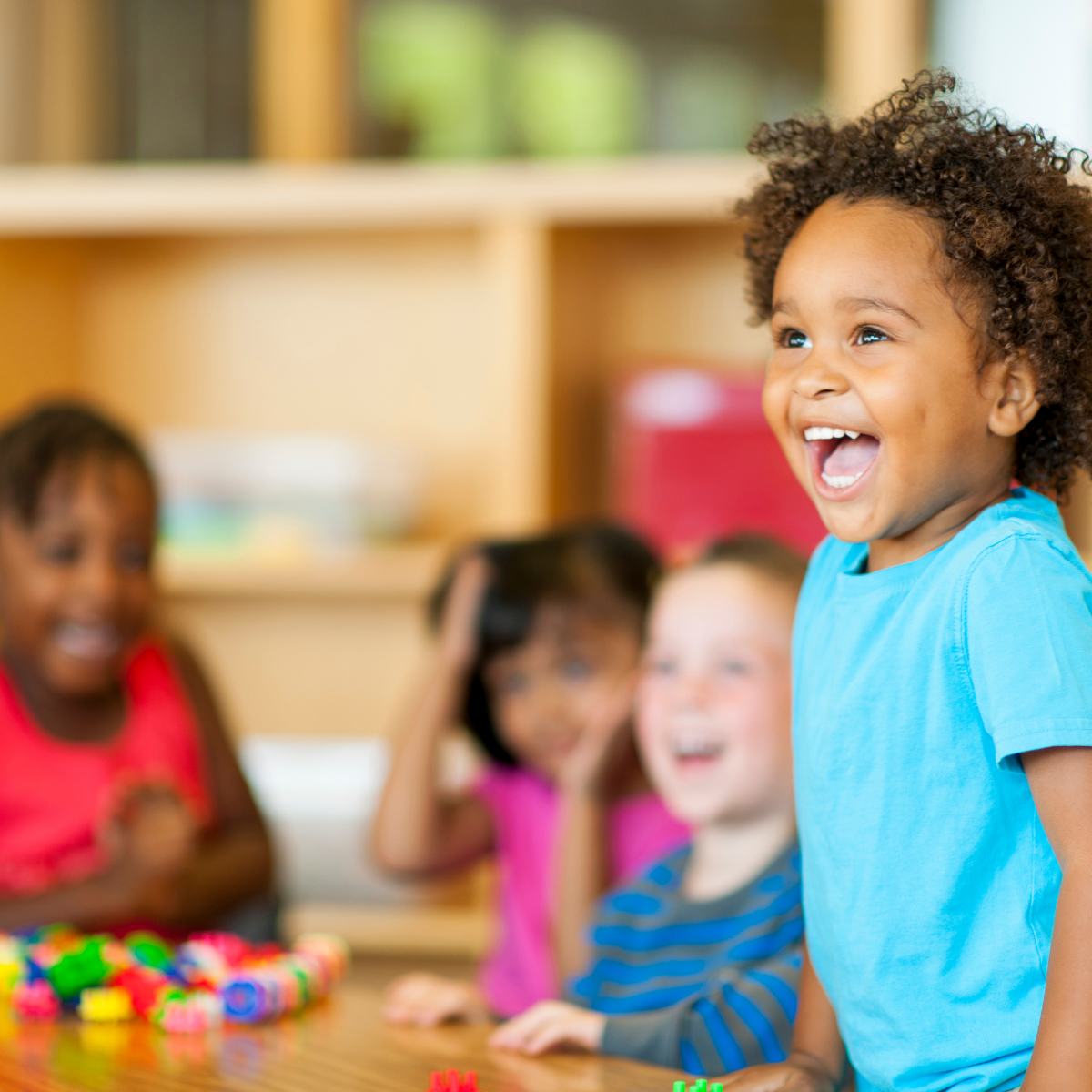Professional development and building a positive classroom environment in 2024
Returning to teaching after the new year can be a time of great optimism. You may have collected new ideas for activities, strategies for providing support, and special ways to collaborate with fellow educators that you’d like to try from your professional development learning opportunities. It can also be a time of challenge as children readjust to routines after winter break. The way we respond to children during times of transition can determine the degree to which they feel secure during their time with us and beyond.
Here are five strategies to help you set the tone for a positive classroom environment in 2024 that are deeply rooted in developmentally appropriate practice.
5 strategies for childcare providers who are looking to enhance their professional development and build a positive classroom environment.

Fall back on your foundation.
The National Center on Early Childhood Development, Teaching, and Learning (NCECDTL) uses a house to represent integral elements of quality teaching and learning for children ages birth to 5, and the foundation includes providing nurturing, responsive, and effective interactions and engaging environments. As you consider the children’s needs heading into the new year, prioritize warm, caring responses, continuity of care across your team, and taking inventory of how the classroom design guides learning. If you use special greetings with children, announce diaper changes before they happen, or comfort a child in a particular way, make sure these behaviors are recognized across all caregivers in the classroom. The start of the new year may not be the best time for early childhood educators to bring in new materials or make too many changes to the routine or learning space. If changes to the physical environment are necessary, keep children’s preferred items on hand to support their transition in the new space.
Adjust the routine. As the early childhood educator, you start your day knowing what the schedule looks like. Though for our youngest students, they rely on routine to provide feelings of competency and safety. After the holidays, students will be coming back to the center used to a different routine with their family. In early childhood education, it is important to support children in settling back in by being flexible and making adjustments to the lengths of experiences as needed. Keep the daily program flexible, shorten circle time or lengthen outdoor play if needed, try smaller group activities or even dedicated one-on-one time for children with a teacher.
Reintroduce the familiar. When returning from an extended absence or when the routine has been interrupted, help ground children with the familiar. Take a few days or an extended period of time to prioritize doing their favorite activities, reading their favorite books, and singing their favorite songs. Make opportunities to review the routine (such as circle time) and encourage children to participate as they re-build their competency.
Individualize. One of the most common themes across continuing education courses for childcare providers is the impact of individualized teaching and following each child’s lead to support healthy developmental outcomes. Individualized teaching and learning are the roof on the house of NCECDTL’s integral elements of quality teaching and learning. While there are several ways you can adjust your teaching that are good for the group, as early childhood educators, we know that children benefit most when activities, strategies, and experiences are implemented with their individual needs in mind. Individualizing might include breaking a task or activity into smaller steps, offering extra time, offering a wider variety of tools and resources, or using visual aids.
Engage families.Engaging parents and families is at the center of NCECDTL’s house framework and is truly at the heart of the work we do with children. We know that parents and families are children’s first teachers, and our partnerships with them are critical for children’s healthy growth and development. Just like you returned to your classroom after the new year with plans to best support each child’s development, families are likely starting the new year with renewed expectations and questions regarding their children’s growth. Find time to connect with families beyond the usual pleasantries about winter break to learn how their thinking has evolved or what new concerns may be at the forefront. Set aside time to meet in person, or schedule home visits. The more early childhood educators can talk with families about what interests and topics are emerging at home, the better we can support learning in the early childhood education field. Having the proper training and understanding for how to approach sensitive and challenging conversations is also crucial in building relationships built on empathy, trust and safety.
Professional Development Solutions for Early Childhood Providers
Investing in professional development is one of the best ways the early childhood workforce can ensure they are creating safe and positive learning environments. High quality professional development for child care providers supports the growth of new skills and knowledge that are not only essential for providing quality learning experiences, but also to help educators in feeling inspired and competent in their work.

Lillio Academy offers high-quality professional development for child care providers. Wether you are looking to uplift the culture of your classroom, improve the effectiveness of your documentation, build stronger family relationships or simply learn new research backed practices to support early childhood development, we have you covered.
To learn more about how Lillio Academy supports early childhood educators with professional development that is modern, personal, self-paced and expert created click here!


Teresa Narey is the Director of Educational Content at FunShine Express and has been in the field for 17 years. She is passionate about social-emotional learning, professional development, understanding theories of child development, and neurodiversity. Prior to joining FunShine, Teresa held various roles in ECE, including assistant director, lead toddler and pre-K teacher, Title I tutor, after-school program instructor, and nanny. Teresa believes high-quality curriculum can be a powerful training tool and equip educators with the knowledge necessary to advocate for the childcare profession. Her educational background includes an MEd in ECE with an Administration specialization from Champlain College, an MFA in Creative Writing: Writing for Children from Chatham University, and a BA in English from Rutgers University.
More by Teresa

Teresa Narey
January 18th, 2024
4 mins
Related Articles

The Benefits of Loose Parts Play for Young Children
December 10th, 2025 | Maddie Hutchison
